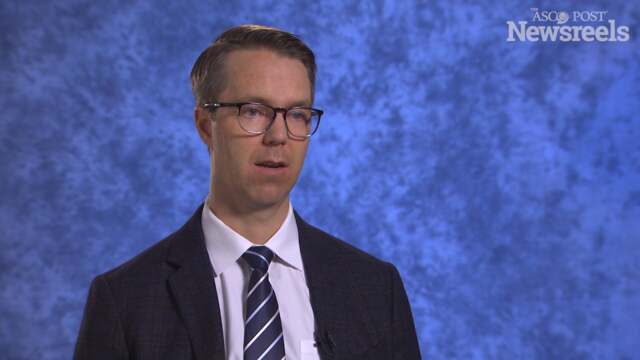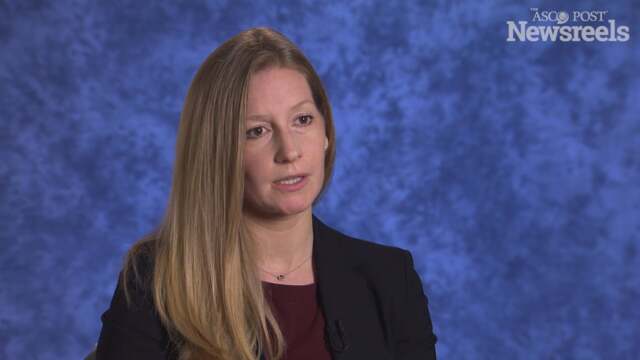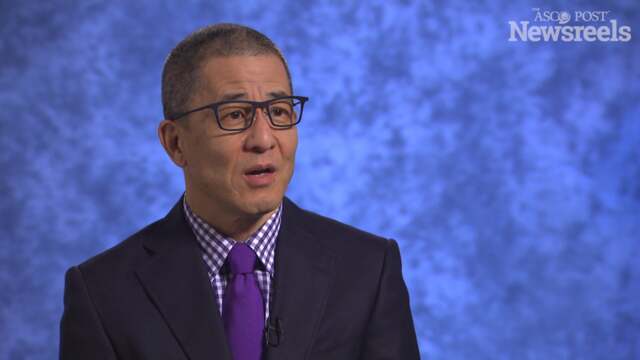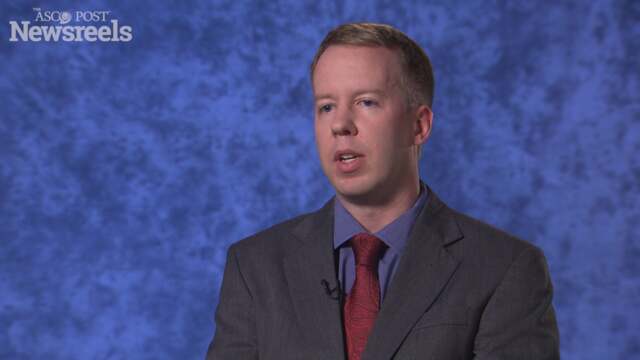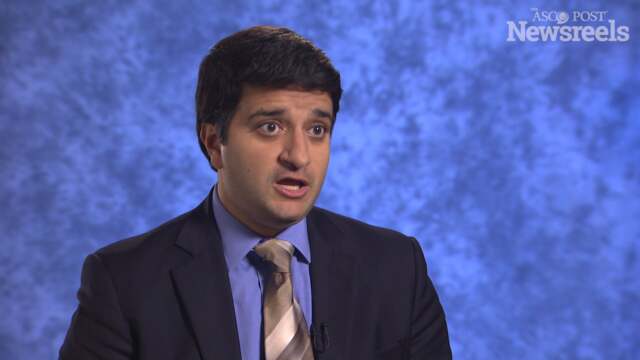Abby R. Rosenberg, MD, on Promoting Resilience in Young Cancer Patients: Results From the PRISM Trial
2017 Palliative Care in Oncology Symposium
Abby R. Rosenberg, MD, of Seattle Children’s Hospital, discusses study findings on a skills-based intervention that helped teens and young adults with cancer manage stress to improve their quality of life and reduce distress (Abstract 176).
Eric Roeland, MD, of the University of California, San Diego, summarizes key papers delivered at the Palliative Care Symposium on managing insomnia, fatigue, nausea, and the ways in which physical therapy and nausea can reduce the side effect burden.
Jamie Jacobs, PhD, of Massachusetts General Hospital Cancer Center, discusses study results that showed integrating oncology and palliative care early in the course of treatment helps people with incurable lung and gastrointestinal cancers cope better and have an improved quality of life and less depression (Abstract 92).
Anthony L. Back, MD, of the University of Washington, talks about how clinicians can protect themselves from burnout and develop resilience. The default approach––“pretending we are not affected by stress”––often backfires, he says, and makes caregivers more susceptible to workplace pressures.
Michael Hoerger, PhD, of Tulane University, discusses the effect on quality of life, depression, and end-of-life care when physicians focus on coping or on decision-making and advance care planning (Abstract 154).
Sandip Patel, MD, of the University of California, San Diego, discusses diagnosing and managing immune-related adverse events from immune checkpoint blockade and the toxicities of these treatments.
